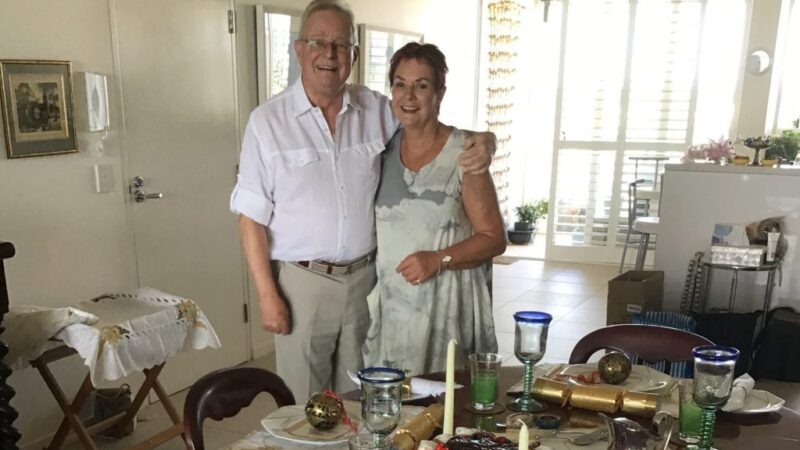
Pioneering life-changing heart surgery performed at University Hospitals Sussex NHS Foundation Trust has been hailed as ‘a great success’ by the doctor leading the surgical team.
A procedure, known as Pascal, to repair a leaking valve in the heart was previously only available in London, Bristol and Manchester, but in the summer of last year, UHSussex became the first Trust in the south-east of England to be granted funding from NHS England to begin carrying out the procedures.
The Trust has completed about 20 operations since then, and expects to perform up to 50 a year. This means that people who might previously have been referred away, or have open-heart surgery, or have their condition managed just by medicine can now have the life-changing treatment.
The operation to repair the leaking mitral valve is similar to the procedure for a mitral valve replacement, and last year the Trust became the first in the UK to perform this surgery when patient Ron Thompson was successfully operated on.
That procedure sees the replacement valve being threaded through a tiny incision in the groin, up through the body and replacing the leaking valve.
The operation is less invasive, quicker to complete, reduces the patient’s stay in hospital by several days and speeds up recovery back at home.
However, patients have to be an exact fit to have the operation and very few people qualify which is why it was important to begin the mitral valve repair procedures, so that so many more patients could benefit.
Professor David Hildick-Smith leads the team who do the procedures.
He said: “This has been the great success of the past year for us. There were only three Trusts in the country – in London, in Bristol and in Manchester – where this procedure was available. Not many patients wanted to travel, even to London, to be assessed for it, because they are usually quite poorly.
“The mitral valve replacement was ground-breaking. However, there are so many patients who do not qualify for the procedure because that demands an exact heart fit for the technology. That meant so many patients had no real alternative – really just open-heart surgery which is often not appropriate for these patients as the risks are high and the recovery is long. The other option has been just tablets with progression usually to heart failure over time.
“Having the expertise at the Royal Sussex in Brighton ready to carry out the procedures and getting the funding has been a huge advance for us as we can now offer some patients life-changing treatment.“
He added: “How the PASCAL differs from the mitral valve replacement is that when we go in through the groin instead of implanting a whole new valve, we repair the leak by clipping the two leaflets together where there is a leak. That brings the leaflets together and stops the blood going backwards. And actually the results from this strange-sounding type of treatment have been very good and very durable so for many elderly patients this could give them as good a result as a mitral valve replacement.
“Now we have this procedure available, people who would have had to put up with breathlessness and fatigue and are unable to do what they want can now come in, have a two hour procedure, a night in hospital and be back home walking the dog the next day. This improves their quality of life and increases their life expectancy.
“In the long-term technology will improve for the replacement but until it does we are the only hospital in the south east that can offer this to patients. It is a great development.”
Patient Richard Godden is testament to the life-changing merits of the PASCAL heart procedure. A few weeks ago he couldn’t go out on his own, and was ‘stuck in his armchair at home.’ Now he’s looking to rekindle a 30 year friendship with a trip to the Sunshine Coast in Australia!
Richard, aged 77, who lives in Hove, said: “I went in for the procedure in December. I went in on a Wednesday and came out the next day. Remarkable.
“The care I received was brilliant, great. Second to none. Everyone was really lovely and it’s great the procedure was available at my local hospital. It’s made such a difference to me and it will for many other people like me.
“Before the operation I was basically in my armchair. A really low quality of life. I would struggle for breath, had to get a stair lift in, needed someone to come with me when I went outdoors because I couldn’t walk very far on my own.
“The difference I felt after the operation was huge. I can breathe better. I can exercise a little. I can walk further.
“Now, I am looking forward to going to Australia on my own to visit a very dear friend. I’ve asked the doctors and they’ve said there is no reason why I can’t go.”
Richard, a retired accountant, added: “I first met my friend Francine at Lake Titicaca in Peru 30 years ago. Over the years we’ve visited each other but Covid and my health put a stop to that.
“But now I’m on the way back and looking forward to visiting the Sunshine Coast in Queensland later this year. I’ll spend a few months out there and Francine is a retired nurse – so she can look after me.”